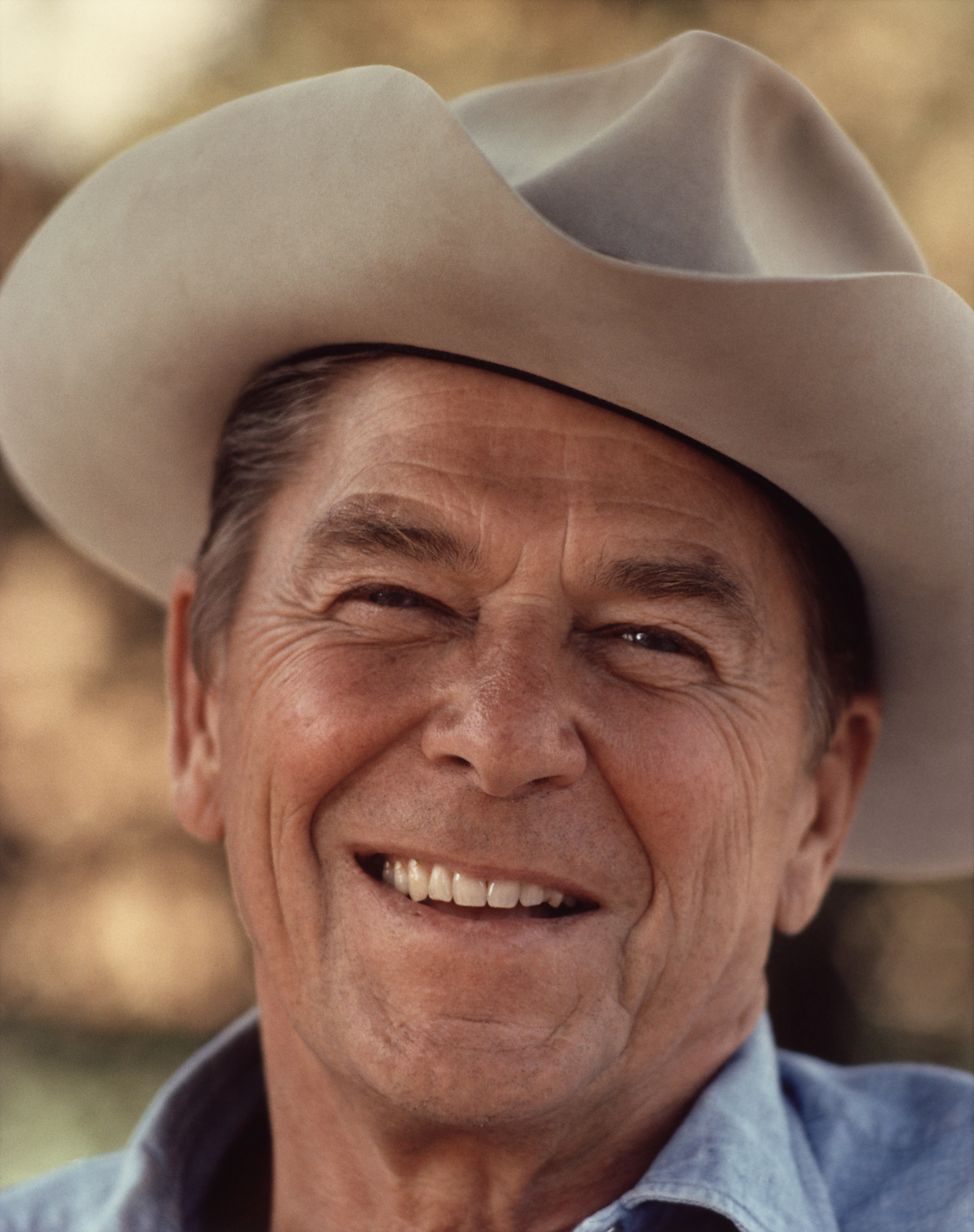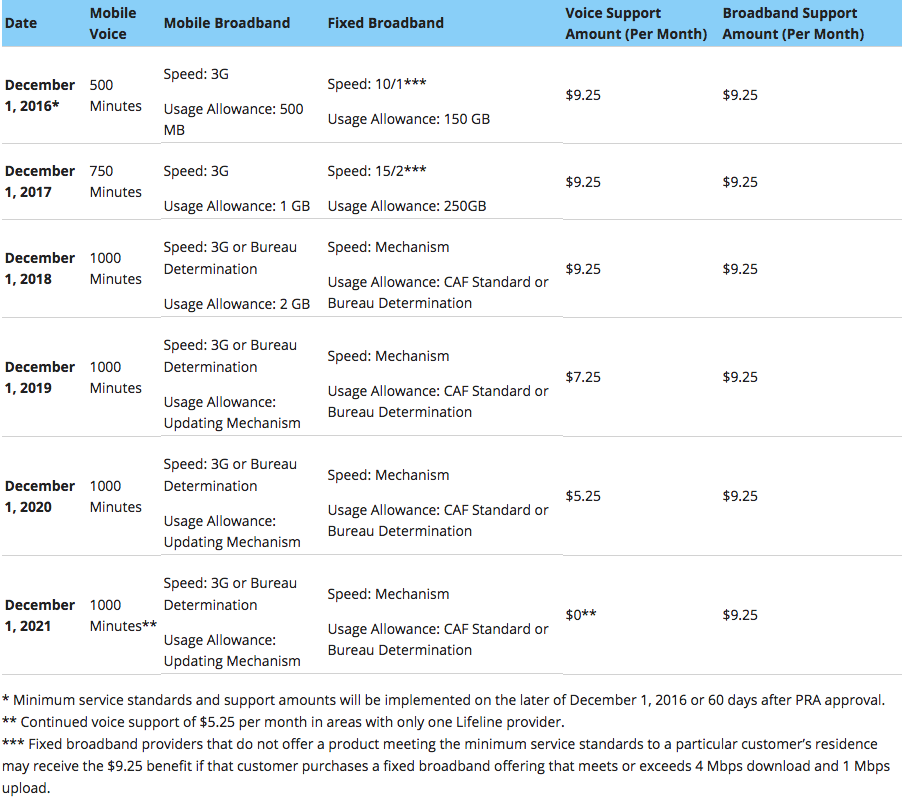|
Lifeline (FCC Program)
Lifeline is the Federal Communications Commission's program, established in 1985, intended to make communications services more affordable for low-income consumers. Lifeline provides subscribers a discount on monthly telephone service purchased from participating providers in the marketplace. Subscribers can also purchase discounted broadband internet from participating providers. Overview Lifeline provides a discount on monthly service of $9.25 per month for eligible low-income subscribers. Subscribers may receive a Lifeline discount on either a wireline or a wireless service, but may not receive a discount on both services at the same time. Lifeline also supports broadband and broadband-voice bundles. FCC rules prohibit more than one Lifeline service per household. Lifeline is available to eligible low-income subscribers in every state, territory, commonwealth, and on tribal lands. To participate in the program, subscribers must either have an income that is at or below 135% ... [...More Info...] [...Related Items...] OR: [Wikipedia] [Google] [Baidu] |
Federal Communications Commission
The Federal Communications Commission (FCC) is an independent agency of the United States federal government that regulates communications by radio, television, wire, satellite, and cable across the United States. The FCC maintains jurisdiction over the areas of broadband access, fair competition, radio frequency use, media responsibility, public safety, and homeland security. The FCC was formed by the Communications Act of 1934 to replace the radio regulation functions of the Federal Radio Commission. The FCC took over wire communication regulation from the Interstate Commerce Commission. The FCC's mandated jurisdiction covers the 50 states, the District of Columbia, and the territories of the United States. The FCC also provides varied degrees of cooperation, oversight, and leadership for similar communications bodies in other countries of North America. The FCC is funded entirely by regulatory fees. It has an estimated fiscal-2022 budget of US $388 million. It has 1,482 ... [...More Info...] [...Related Items...] OR: [Wikipedia] [Google] [Baidu] |
Poverty In The United States
In the United States, poverty has both social and political implications. In 2020, there were 37.2 million people in poverty. Some of the many causes include income inequality, inflation, unemployment, debt traps and poor education.Western, B. & Pettit, B., (2010)Incarceration and social inequality.Daedalus, 139(3), 8-19 The vast majority of people living in poverty are less educated and end up in a state of unemployment;Census.gov, (September, 2017) Income and Poverty in the United States: 2016. Retrieved from https://www.census.gov/content/dam/Census/library/publications/2017/demo/P60-259.pdf higher incarceration rates have also been observed. Although the US is a relatively wealthy country by international standards, poverty has consistently been present throughout the United States, along with efforts to alleviate it, from New Deal-era legislation during the Great Depression, to the national war on poverty in the 1960s and poverty alleviation efforts during the 2008 Great R ... [...More Info...] [...Related Items...] OR: [Wikipedia] [Google] [Baidu] |
Presidency Of Ronald Reagan
Ronald Reagan's tenure as the 40th president of the United States began with his first inauguration on January 20, 1981, and ended on January 20, 1989. Reagan, a Republican from California, took office following a landslide victory over Democratic incumbent President Jimmy Carter in the 1980 presidential election. Four years later, in the 1984 election, he defeated Democrat former vice president Walter Mondale to win re-election in a larger landslide. Reagan was succeeded by his vice president, George H. W. Bush. Reagan's 1980 election resulted from a dramatic conservative shift to the right in American politics, including a loss of confidence in liberal, New Deal, and Great Society programs and priorities that had dominated the national agenda since the 1930s. Domestically, the Reagan administration enacted a major tax cut, sought to cut non-military spending, and eliminated federal regulations. The administration's economic policies, known as "Reaganomics", were insp ... [...More Info...] [...Related Items...] OR: [Wikipedia] [Google] [Baidu] |
Presidency Of George W
A presidency is an administration or the executive, the collective administrative and governmental entity that exists around an office of president of a state or nation. Although often the executive branch of government, and often personified by a single elected person who holds the office of "president", in practice, the presidency includes a much larger collective of people, such as chiefs of staff, advisers and other bureaucrats. Although often led by a single person, presidencies can also be of a collective nature, such as the presidency of the European Union is held on a rotating basis by the various national governments of the member states. Alternatively, the term presidency can also be applied to the governing authority of some churches, and may even refer to the holder of a non-governmental office of president in a corporation, business, charity, university, etc. or the institutional arrangement around them. For example, "the presidency of the Red Cross refused to support ... [...More Info...] [...Related Items...] OR: [Wikipedia] [Google] [Baidu] |
Ajit Pai
Ajit Varadaraj Pai (; born January 10, 1973) is an American lawyer who served as chairman of the U.S. Federal Communications Commission (FCC) from 2017 to 2021. He has been a partner at the private-equity firm Searchlight Capital since April 2021. The son of Indian immigrants to the United States, Pai grew up in Parsons, Kansas. He is a graduate of both Harvard University and the University of Chicago Law School. He worked as a lawyer in various offices of the U.S. Department of Justice and the U.S. Senate Judiciary Committee, with a two-year stint as an in-house lawyer for Verizon Communications. He joined the FCC as a lawyer in its Office of General Counsel in 2007. He was nominated to be a commissioner in 2011 by President Barack Obama, who followed tradition in preserving balance on the commission by accepting the recommendation of Senate Majority Leader Mitch McConnell. He was confirmed unanimously by the U.S. Senate on May 7, 2012, and was sworn in on May 14, 2012, for ... [...More Info...] [...Related Items...] OR: [Wikipedia] [Google] [Baidu] |
Universal Service Fund
The Universal Service Fund (USF) is a system of telecommunications subsidies and fees managed by the United States Federal Communications Commission (FCC) intended to promote universal access to telecommunications services in the United States. The FCC established the fund in 1997 in compliance with the Telecommunications Act of 1996. The FCC is a government agency that implements and enforces telecommunications regulations across the U.S. and its territories. The Universal Service Fund's budget ranges from $5–8 billion per year depending on the needs of the telecommunications providers. These needs include the cost to maintain the hardware needed for their services and the services themselves. The total 2019 proposed budget for the USF was $8.4 billion. The budget is revised quarterly allowing the service providers to accurately estimate their costs. As of 2019, roughly 60% of the USF budget was put towards “high-cost” areas, 19% went to libraries and schools, 13% was for low ... [...More Info...] [...Related Items...] OR: [Wikipedia] [Google] [Baidu] |
Telecommunications In The United States
The primary regulator of communications in the United States is the Federal Communications Commission. It closely regulates all of the industries mentioned below with the exception of newspapers and the Internet service provider industry. History The Federal Communications Commission (FCC) is an independent government agency responsible for regulating the radio, television and phone industries. The FCC regulates all interstate communications, such as wire, satellite and cable, and international communications originating or terminating in the United States. Press Newspapers declined in their influence and penetration into American households in the late 20th century. Most newspapers are local, having little circulation outside their particular metropolitan area. The closest thing to a national paper the U.S. has is ''USA Today''. Other influential dailies include ''The New York Times'', ''The Washington Post'' and ''The Wall Street Journal'' which are sold in most U.S ... [...More Info...] [...Related Items...] OR: [Wikipedia] [Google] [Baidu] |



